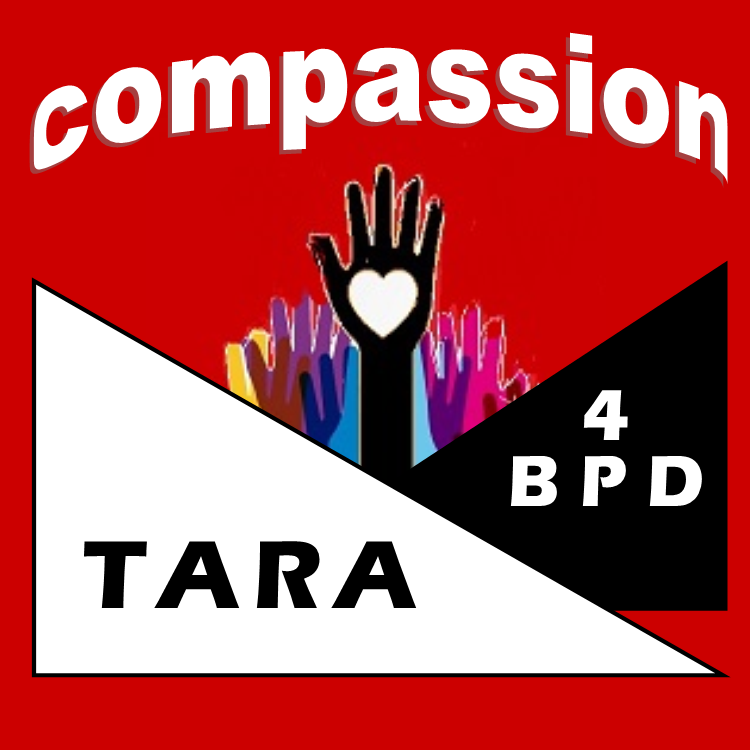The TARA4BPD METHOD
Borderline Personality Disorder Family PSYCHOEDUCATION
The TARA Method honors your motivation and intelligence by providing you with tools and techniques for decreasing emotional episodes that may end in crisis. TARA's classes are intensive learning experiences, not support groups. The TARA Method, a family lifesaver, will guide you to repairing estranged relationships, improving communication and encouraging your loved one to participate in evidence based BPD therapy. BPD is a 24 hour disorder that is triggered by events in the environment. Learn how to avert catastrophes before they happen.
You have probably sought professional help, may have received inappropriate and harmful advice, or may have done the wrong thing for the right reasons. Unfortunately, therapy alone will not solve the problem. Research demonstrates that informed families can become treatment adjuncts. TARA can teach you how to be a therapeutic parent, partner or loved one.
For Family
TARA Method: Family Psychoeducation
“We need to customize the BPD family environment to make it less stressful for the person with BPD”
An integrated program developed to help family members deal with the capricious and often difficult behaviors of people with BPD. It includes neurobiological underpinning of BPD, Dialectic Behavior Therapy (DBT). Cognitive Behavior Principles, Emotion Recognition Training, and Mentalization Based Therapy (MBT). It is a collaborative approach to BPD that views family members as therapeutic Partners, empowering them by teaching how to actually apply methods based on BPD Evidence Based Treatments (EBT) to implement in their day-to-day environment.
The TARA Method is hands on Family empowering training.
It is not a support group.
The goal of the TARA Method is for families to do more than cope with a loved one with BPD but to be trained to actually implement helpful EDT techniques. Family members may often do the wrong thing for the right reasons because they do not know the effective ways to help. The TARA Method teaches family members how to decrease the severity, frequency and intensity of volatile eruptions while developing compassion, increasing trust and improving communication. When the person with BPD is in an EBT such as DBT, the family members can be integral treatment reinforcers. The ultimate aim of the TARA Method is to motivate the person with BPD to enter into, remain in, and actually participate in therapy. Online surveys of TARA graduates demonstrate the efficacy of the TARA Method.
Curriculum
TARA’S BPD Family Survival Skills
“Families are an untapped resource for reinforcing DBT skills”
Workshops, based on Evidence Based Treatments (DBT & MBT), aim to heal and repair family relationships by fostering development of compassion for the person with BPD. When family members are able to help their loved ones, their own stress decreases. TARA believes family members are highly motivated to help their loved one, can learn how to reduce environmental triggers and reinforce effective behaviors. When families understand underlying BPD neurobiology and apply effective EBT techniques, they can act as therapeutic parents or partners. TARA data demonstrates that changing family behavior can decrease eruptions, reestablish trust and encourage loved ones to final seek effective treatment leading to living a more fulfilling life.
WHAT YOU WILL LEARN
BPD Family Experience
BPD Essentials: The neurobiology of BOD
Cutting edge neurobiological findings on brain systems and connections explain the seemingly irrational BPD behaviors.
Why Limits Don’t Work: Cognitive Behavior
The way we think determines the way we feel determines the way we act. Why “Tough love” or boundaries don’t work. Understanding the importance of reinforcement, consequences and choices.
Speaking Emotional Language
How recognizing emotions and their function can improve communication
Treatment Essentials: DBT and Mentalization
How DBT differs from other treatments and helps people change behavior. How mindfulness, a DBT skill, helps to focus attention in the present moment, not the past or future Mentalization (MBT): Understanding how minds meet, how does MBT differ from DBT?
What Works: Validation, Acceptance, Compassion
Why is validation so important? how do you validate? Deciphering behavior, establishing priorities, tolerating distress, interpersonal skills (DEAR MAN) and role playing
Radical Acceptance & Grief
Accepting BPD, reframing expectations, acknowledging grief and sharing grief ritual.

